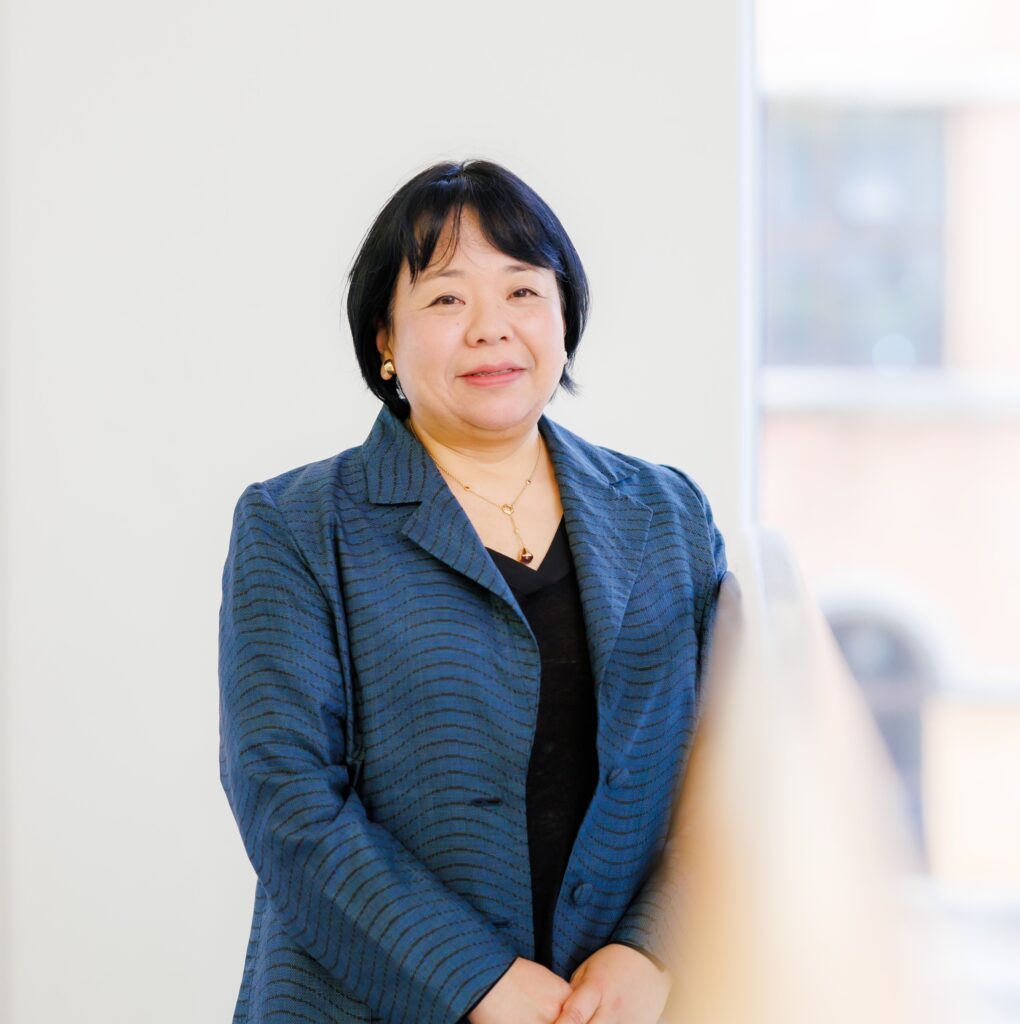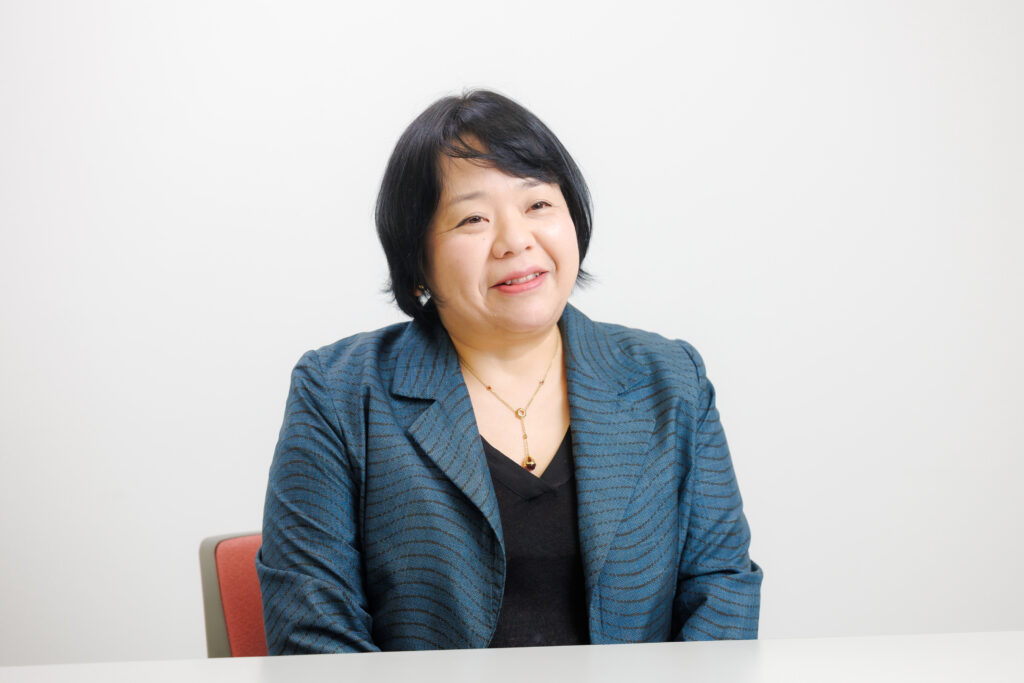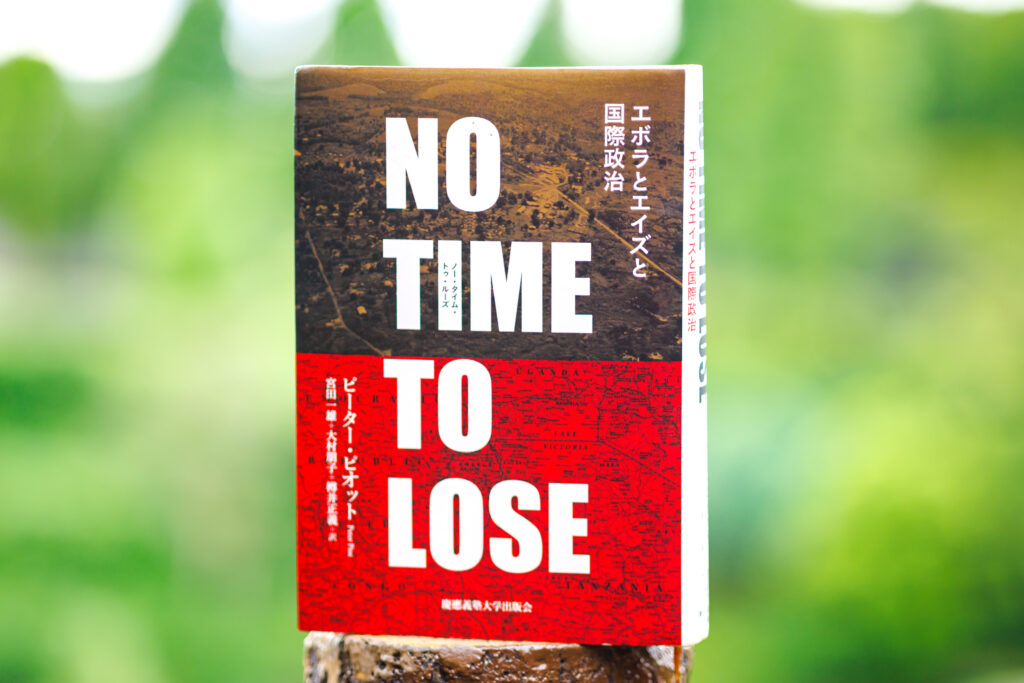
Associate Professor Yae Yoshino from the Department of Nursing has qualifications that include being a nurse, midwife, and public health nurse. For years, she had been involved in nurturing health professionals in developing countries. Currently, she is researching methods for the development of nursing professionals while conducting online classes in collaboration with overseas universities.
Although there are quite a few students who seek to study overseas during their time in university, due to the tight schedule at the Department of Nursing, including practical training and preparation for national examinations, it tends to be difficult to do so in reality. The medical sector is undergoing rapid globalization, and work opportunities for nurses have expanded to the entire world. The treatment of foreign patients in Japan also requires communication skills and an understanding of other cultures.
My research theme is the provision of opportunities for students to acquire global perspectives and cross-cultural skills under the Collaborative Online International Learning (COIL) program being promoted by Japan’s Ministry of Education, Culture, Sports, Science and Technology.
Japan’s differences and commonalities revealed through discussions

Currently, we are conducting joint online classes over the course of one year with six US universities as well as a university each in Mongolia and Thailand. Students learn new topics—such as drug dependence and the economy and health disparities—from University of California, Los Angeles lecturers as part of the required subjects in their third year. We also have interpreters for students who are not good in English.
Electives include attending normal classes of US universities in real time with US students without interpretation. The enormous amount of pre-course work and intense discussions are part of the experience of studying overseas virtually and also well received by students.
Class plans are jointly developed with overseas lecturers over the course of six months, and we carefully select the six papers in English for pre-course work and create case studies that take into consideration the differences in the healthcare systems between Japan and the US. In the mixed breakout sessions, students from both Japan and the US learn about the symptoms of patients from multiple angles before discussing and presenting on the nursing care to provide.
Global network of nursing professionals from the same generation for mutual support in the future
While there are issues such as differences in time zones and curriculum adjustments between countries, I feel a positive response as the new possibilities in global education, including the commencement of online classes with a Jesuit university in Spain in the autumn 2022 academic semester.
Through the online classes, shocked by the racial discrimination at medical frontlines and disparities in healthcare access in the US, students become aware of the outstanding areas and issues in Japan’s healthcare and nursing. In classes with universities of developing countries, there are also students who come to take pride in their own cultures as well as those who gain a greater thirst for new knowledge.
The appeal of these classes is being able to learn together and influence each other regardless of the stage of development in one’s country. Some students continue to keep in touch through social media after the course. To me, the final goal is to create a platform that links people from all over the world sharing a common goal.
The book I recommend
“No Time to Lose: A Life in Pursuit of Deadly Viruses“
by Peter Piot, translated by Kazuo Miyata, Tomoko Omura, and Masayoshi Tarui, Keio University Press.

This is the memoir of Dr. Peter Piot, one of the laureates for the Second Hideyo Noguchi Africa Prize in 2013. Devoting himself to fighting Ebola hemorrhagic fever in the 1970s and AIDS in the 1980s, he has always been on the side of the weak. I have actually met him a few times in Japan and overseas at conferences, and he is a funny and charming person.
-
Yae Yoshino
- Associate Professor
Department of Nursing
Faculty of Human Sciences
- Associate Professor
-
Graduated from St. Luke’s College of Nursing, obtained her MPH at London School of Hygiene & Tropical Medicine, and received her Ph.D. in Medicine after completing the doctoral program of Kitasato University Graduate School of Medical Sciences. Took on the position of associate professor at Kitasato University School of Nursing before assuming her current position in April 2019. Director at People’s Hope of Japan and Advisor at Mongolian Nurses Association.
- Department of Nursing
Interviewed: September 2022